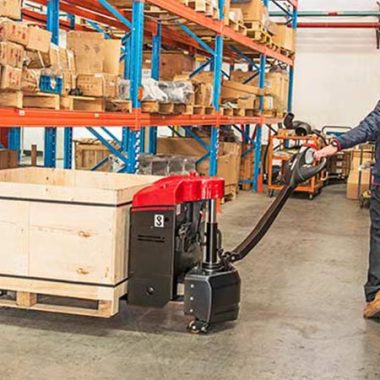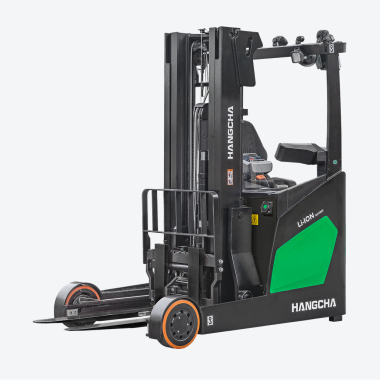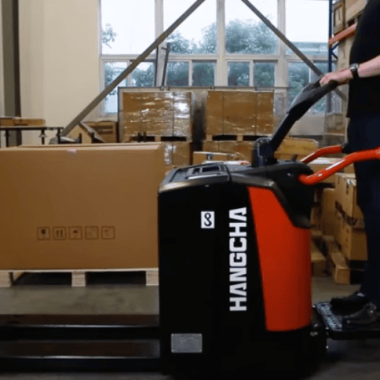Let me tell you about something I’ve noticed lately—walk into any decent-sized warehouse or worksite these days, and chances are, the old diesel forklifts are being phased out. They’re being replaced by electric models, and after seeing the difference firsthand, I get why.
I was chatting with a mate who runs a distribution center in Melbourne last week. He switched his entire fleet to electric forklifts two years back and hasn’t looked back. “Remember how we used to have to air out the warehouse every few hours because of the fumes?” he said. “Now? Nothing. Just clean air and no headaches—literally.”
Where Electric Forklifts Actually Make Sense (No, They’re Not Just for Warehouses)
- Indoor Work – Where Diesel Just Doesn’t Cut It
If you’ve ever worked in a warehouse with diesel forklifts, you know the drill—constant ventilation, noise complaints, and that lingering smell. Electric forklifts? Silent, zero fumes, and no more fuel spills staining your floors. A client in Sydney’s inner west told me their insurance premiums actually dropped after switching because of reduced fire risks.
- Cold Storage – Because Diesel Hates the Cold
Talk to anyone running a cold storage facility, and they’ll groan about diesel forklifts in freezing temps. Batteries, though? No problem. A seafood distributor in Hobart told me their electric forklifts start up first go, even at -20°C. Try that with a diesel engine.
- Outdoor Sites – Yes, Really
I’ll admit, I was skeptical at first. But after seeing electric forklifts handling muddy construction sites in Brisbane and dusty mining yards in WA, I’m convinced. No oil changes, no fuel filters clogging up—just plug in at the end of the shift and go.
- Food & Farming – Where Clean Matters
Ever seen a diesel forklift leak oil near fresh produce? Not a good look. More food processors are switching to electric purely to avoid contamination risks. One organic farm in the Adelaide Hills even hoses theirs down daily—something that’d kill a diesel model in weeks.
The Real Cost (It’s Cheaper Than You Think)
Here’s what most people get wrong—they see the upfront price and balk. But talk to anyone who’s made the switch, and they’ll tell you the savings stack up fast:
– No more fuel bills (and let’s be honest, diesel isn’t getting cheaper)
– Less maintenance(no engine oil, no spark plugs, no exhaust systems to replace)
– Longer lifespan (well-maintained electric forklifts often outlast diesel ones)
A logistics manager in Perth told me they recouped the extra cost in under two years. After that? Pure savings.
Hangcha’s Electric Forklifts – Available Everywhere, Backed Locally
Here’s the thing—we supply electric forklifts across the entire country, from Darwin to Melbourne, and everywhere in between. But we don’t just drop them off and disappear. Need servicing in regional Queensland? We’ve got local techs who’ll get to you fast. Battery issues in Tasmania? We stock parts locally so you’re not waiting weeks for a fix.
The Bottom Line
Electric forklifts aren’t some futuristic concept—they’re here, they work, and they’re saving businesses real money. If you’re still running diesel or gas, ask yourself:
– How much are you spending on fuel and maintenance?
– How often do breakdowns slow you down?
– Would cleaner, quieter operations improve your workplace?
If the answers make you think it’s time for a change, give us a shout. We’ll even bring a demo model to your site so you can try before you buy—no hard sell, just honest advice on what’ll work best for your operation.
Want to see for yourself? Check out Hangcha or call your nearest branch. Let’s get you moving—cleaner, cheaper, and with a lot less hassle. Feel free to take a look at our detailed electric forklift page, if you have any questions please contact us at anytime, we will get back to you shortly.
Because at the end of the day, your forklifts should make your job easier, not harder.

























